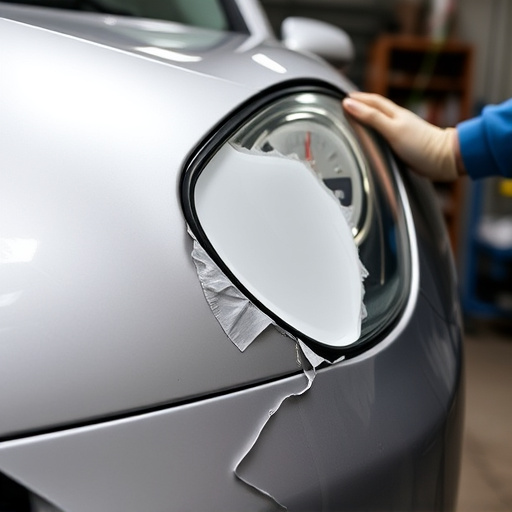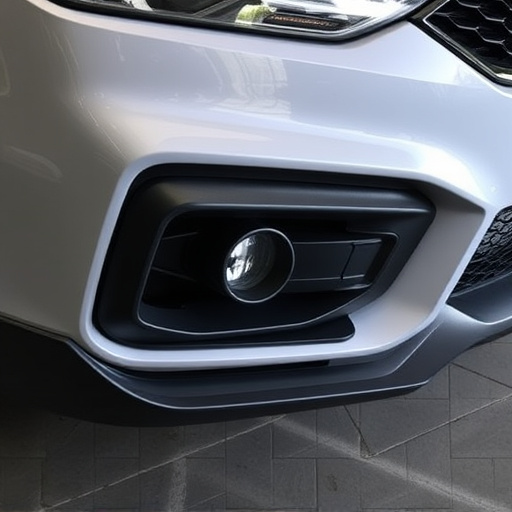Choosing eco-friendly materials like recycled metal and bio-composites for radiator support replacement reduces environmental impact, aligns with industry trends towards sustainability, enhances collision repair efficiency, and appeals to environmentally conscious consumers, making it a strategic decision for auto repair shops.
When it comes to radiator support replacement, environmental considerations are no longer a peripheral concern but a core aspect. Understanding the intricate role of radiator support systems in vehicle performance and their significant ecological impact is crucial. This article delves into the sustainable dimensions of this process, exploring how choosing eco-friendly materials and adopting green practices can minimize the environmental footprint of radiator support replacement.
- Understanding Radiator Support Systems and Their Impact on the Environment
- Choosing Sustainable Materials for Replacement Parts
- Implementing Eco-Friendly Practices in Radiator Support Replacement
Understanding Radiator Support Systems and Their Impact on the Environment

Radiator support systems are an integral part of any vehicle’s structure, providing both structural integrity and functional benefits. These systems play a crucial role in maintaining optimal engine temperature by facilitating the flow of cooling fluids. However, when considering radiator support replacement, it’s essential to have a deeper understanding of these systems and their environmental implications. The traditional support components are often made from metal, which, while durable, can contribute to significant environmental impact during manufacturing and disposal.
During a radiator support replacement, automotive professionals must consider eco-friendly alternatives that reduce the carbon footprint associated with bumper repair and car paint services. Modern materials like lightweight composites or recycled metals offer sustainable solutions without compromising strength. Furthermore, proper disposal and recycling methods are vital in minimizing the environmental damage caused by automotive restoration processes. By adopting these practices, the industry can contribute to a greener future while ensuring efficient radiator support systems in vehicles.
Choosing Sustainable Materials for Replacement Parts

When undertaking a radiator support replacement, one key aspect to consider is the environmental impact of the materials used. Opting for sustainable and eco-friendly parts isn’t just beneficial for the planet; it can also contribute to more efficient collision repair services. Choosing materials like recycled metal or bio-based composites over traditional options reduces the carbon footprint associated with production and disposal, making it a responsible choice for both mechanics and the environment.
This shift towards sustainability is part of a broader trend in car bodywork services to incorporate green practices. By selecting replacement parts that are not only durable but also environmentally sound, workshops can play their part in mitigating the ecological consequences of automotive repairs. This approach aligns with the growing demand for eco-conscious vehicle dent repair solutions, ensuring that every step in the repair process, from replacing damaged components to recycling old ones, contributes to a greener future.
Implementing Eco-Friendly Practices in Radiator Support Replacement

When undertaking radiator support replacement, adopting eco-friendly practices is both a responsible and strategic choice. This involves sourcing sustainable materials that minimize environmental impact during production and disposal. For instance, opting for recycled metal in new support structures reduces the demand for virgin resources, thereby lowering energy consumption and greenhouse gas emissions. Additionally, using biodegradable or recyclable packaging materials for replacement parts ensures that even the waste generated during radiator support replacement contributes to a greener process.
Many collision centers and car damage repair shops are now prioritizing these eco-friendly approaches as part of their commitment to sustainability. Incorporating sustainable practices not only benefits the environment but can also enhance a shop’s reputation among environmentally conscious customers. Moreover, it aligns with broader trends in the auto industry towards auto glass replacement and overall vehicle maintenance that prioritize environmental stewardship.
In conclusion, considering environmental factors during radiator support replacement is no longer an option but a necessity. By understanding the impact of these systems on our planet and adopting sustainable practices, we can significantly reduce our carbon footprint. Choosing eco-friendly materials and implementing green initiatives ensure a more responsible approach to car maintenance. Embracing these changes not only benefits the environment but also fosters a culture of sustainability within the automotive industry, driving progress towards a greener future for all.













